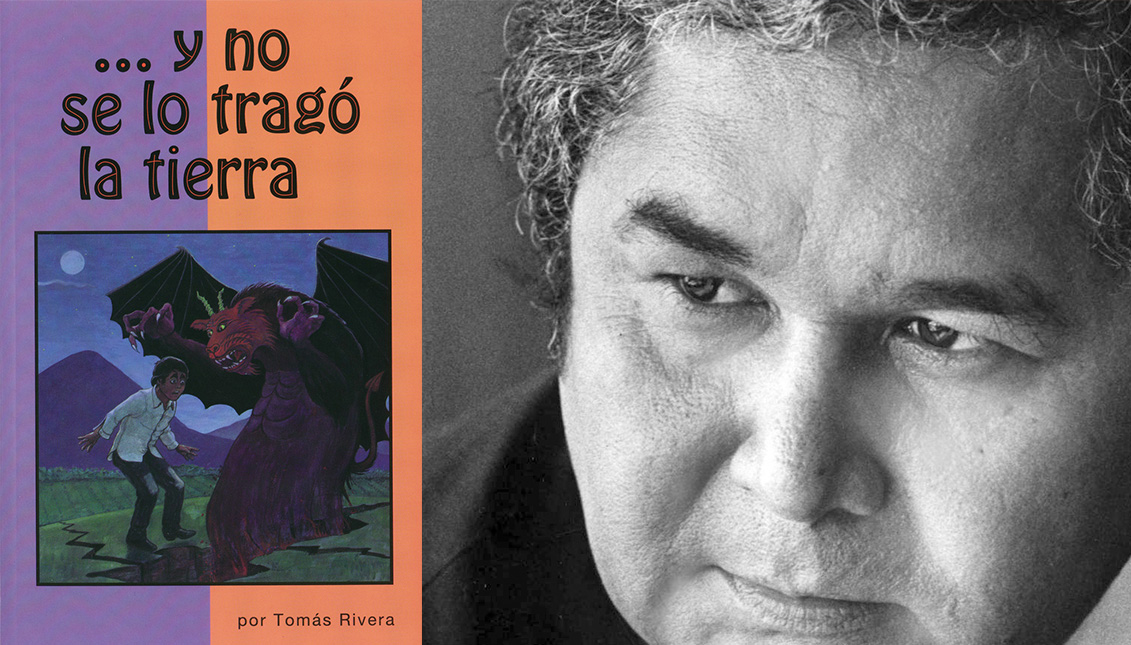
It's 50 years since '... And the Earth Did Not Devour Him,' a bible of Chicano fiction
First published in Spanish, the novel by the late Tomás Rivera marked a milestone in the history of Mexican-American and Latino literature in the United States.
Born in Texas in 1935 and the son of Mexicans, Tomás Rivera lived a migrant childhood accompanying his parents on farm labor across the middle of the country, from Missouri to Minnesota.
Like many migrant children of the time, he combined work in the fields with school and eventually earned a doctorate from the University of Oklahoma to teach both in high schools and at the university, where he became rector of UC Riverside.
His experiences as the son of migrants were published for the first time in a short novel that would become a cornerstone of Chicano literature, alongside the works of other great writers such as Rudolfo Anaya and José Antonio Villarreal.
We are referring to ...And the Earth Did Not Devour Him, which tells from the perspective of a child the vicissitudes of Mexican American farm families who faced a life of constant movement, from one plantation to another, from one worsening employment situation to the next, trying to cope with the normalized racism of the time.
Originally published in Spanish, the work is 50 years old and this year for the first time the annual Tomás Rivera Conference, hosted by UC Riverside, will be extended with free events beginning today, April 13, and running through June.
"Tomás Rivera's book was a very important part of the formation of the canon. In many ways, it was really the first Chicano book," said Alex Espinoza, associate professor in the University's Department of Creative Writing. "Someone like Tomás Rivera, along with Rudolfo Anaya and José Antonio Villarreal, gave a literary presence to the voices and lived experiences of Mexican-Americans in a way that the literary world had never seen."
Tomás Rivera holds a place of honor among Chicano writers on the scene in the 1960s and 1970s because he was a pioneer in including their experiences in narrative and doing so in Spanish.
RELATED CONTENT
"He took experiences, he witnessed injustices, and he really turned them into something very powerful in the book," stated Espinoza.
The writer was also the first Latino rector of UCR, an institution he led from 1979 until his death in 1984, during which time he often traveled to the Coachella Valley to visit the region's migrant workers and teach children poetry in the fields. He was also a lifelong advocate for university education.
In the novel, winner of the 1971 Quinto Sol Prize - Quinto Sol was a Chicano publishing house whose authors achieved international renown - Rivera weaves together stories that bring us back both to family love and community and to the essence of what makes us human, leading the reader to share in the pain of a boy who faces prejudice for being Mexican or the suffering of parents when their son goes missing in action in the Korean War.
It also introduces us to the exhausting working days under a scorching sun, on the verge of dying of thirst and exhaustion, praying because faith and family are the only way to hold on.
But not everything is hardness. In ...And the Earth Didn't Devour Him there is innocence and humor, colloquialisms and stories told about a "distant luta" (Utah) that some farmers place near Japan because of the way it sounds. Or of the child drinking a glass of water that his mother leaves under the bed for thirsty spirits.
This year is Tomás Rivera Year for all of us who admire his work and also that of his heirs. Like the writer J.L Torres (Boricua Passport and The Family Terrorist and Other Stories), winner of the Tomas Rivera Literary Award with a work to be published by Los Angeles Review of Books Press in June 2021.












LEAVE A COMMENT: